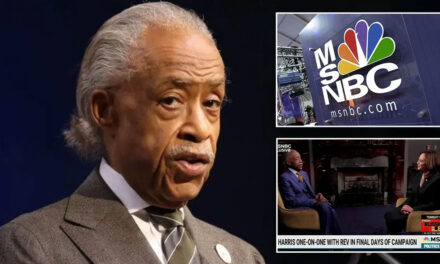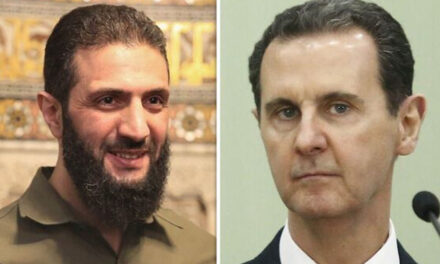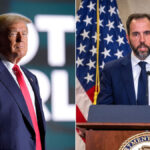
HORIST: Independence Day: It is all about e pluribus unum
There are two types of nations. In one case, it is an assemblage of people who cling to separate cultural backgrounds – customs, religion, food, music and even language. Such nations are held together by political authority from the top. They tend to be countries that we describe as unstable. We see those kinds of nations in many Middle East Nations.
Then there are nations with a broadly accepted common culture – set of established beliefs and core principles. In some cases, a national culture may go back centuries with very little minority interests. Many nations in Europe have evolved with that model. That long history is being tested in Europe with the new influx of immigrants with a different culture and value system. These nations do not assimilate well.
Of course, every nation may be composed of folks from widely different backgrounds, but there can still be an overarching common culture. America is – or at least was – the world’s best example of the latter. In contrast to the long-standing indigenous nations of Europe, Africa and Asia, the United States was formed as and remains an immigration nation.
The question before our Founders was whether a nation that governed bottom up – not top down – could successfully function with the influx of individuals from widely different cultures. Could new arrivals to America respect their heritage and yet accept the principles of the new culture? It was a matter of assimilation – to pledge one’s allegiance to the basic laws and beliefs of their new homeland.
The Founders understood this challenge. It is the reason that they carefully and deliberately chose the motto, e pluribus unum – out of many, one. If America was to be successful, it was important … no, essential … that there be a common belief in such basics as maximum personal freedom and limited government. That is the very essence of a belief in the peoples “inalienable” right to govern from the grassroots.
That is why the flag and the National Anthem are such important symbols. Because they mean that all of us who call ourselves Americans have a common belief in a set of principles – principles broadly outlined in our Constitution and underscored in the Bill of Rights.
Within the historic American cultures, people can have and express different beliefs. We can disagree on policy. We can argue – even heatedly – over issues, but we still accept the principles of the unique American culture. We fall back on the right to speak freely – even controversially or offensively. We can assemble and demonstrate our grievances against our own government. We can select our leaders without fear of government oppression. We enact our own laws based on the basic cultural principles.
For most of American history, the people have been proud to be called “rough individualists” and have rejected excess government involvement in our lives with cliché expressions such as “don’t make a federal case of it.”
And for generations, people from all over the world migrated to America for freedom – with economic improvement being only one consideration, almost an afterthought.
In the mid 1900s, that began to change. Most obvious in the 1930s – and then again in the 1960s – there arose movements that challenged the American culture of personal freedom, limited government and free enterprise. It could be described as an internal anti-American movement.
This movement naturally arose from the progressive left. Whereas the progressivism of the early 1900s was based on economics, the modern progressive movement is based on political power – with economics as a subtext.
As more and more power has evolved to the federal government in Washington, D.C., we, the people lost much of our ability to influence government policy. More and more, we have become governed over rather than governed by.
It was noted above that nations without a common culture – a commonly accepted set of principles – are ruled over by authoritarian governments. It is only natural that the growth of a more distant authoritarian government would emphasize parochial interests. This balkanization of America has become so evident that we have given it a name – identity politics. And we implement it with something called “political correctness.”
The breakdown in our common culture is seen in the increasingly institutionalized disrespect for the symbols of unity – the flag and the National Anthem. Tribalization is breaking down the bond of unity – and rather than assimilating, we are creating a hodgepodge of cultural islands and interests.
Where we once described America as a melting pot – the metaphor of assimilation – we have become more of a bucket of rocks – a white rock, black rock, brown rock, red rock and yellow rock – never to blend into a common culture.
This balkanization or tribalization of America is not based only one skin color, but on the introduction of demands inconsistent with core values expressed in the Constitution. The Tenth Amendment that limits the scope and power of our federal government is essentially null and void. We are seeing assaults on religious expression. The concept of free speech is being narrowed by government-imposed ideology. Free enterprise is being undermined by the encroachment of regulatory socialism.
It is irrefutable that we are less free today than we were in my youth. That is because we a losing the struggle between governing ground up to a top down system – and in so doing, we are losing the connective tissue of the common cultures. We are losing our motto. That is something to think about this Independence Day – and to carry forward in the future.
We celebrate Independence Day as a celebration of our independence from the oppressive English monarchy. Let us hope and pray that we have not traded that for an oppressive government in Washington.
So, there ‘tis.


























Oh my gosh! This writing is “as good as it gets”. I will reprint and frame and put prominent in my home. Thank you so much.
Right on
this needs to be printed and posted in every school -college-and work place in america…
So eloquently and correctly stated. When we were children, we were so proud of our mixing pot. A little French boy from Quebec came to our forth grade elementary class. He spoke no English. We all jumped in and taught him English and our culture. We were so proud of him and ourselves. He wanted to be an America. He still spoke French but he became a proud American. This may be why God lets us grow old and pass. It’s hard to live with a broken heart over tho demise of your beloved country. God bless America.Land that I love.
WELL PUT LARRY!
Larry, you’ve nailed it again!
Phil in TX
A work of art! I will open my next semester of Government class with a reading of your outstanding interpretation of our current state of affairs. My students will appreciate your honesty and insight. We as a once free nation. must stand for the dream of our Founding Fathers or perish.
You are absolutely right, Harry!
God bless America, our culture, our capitalism and our flag and national anthem.
With all the hyphenated Americans and different languages, the leftists (they’re not liberal or progressive) are rapidly changing our motto to E Pluribus Pluribus.